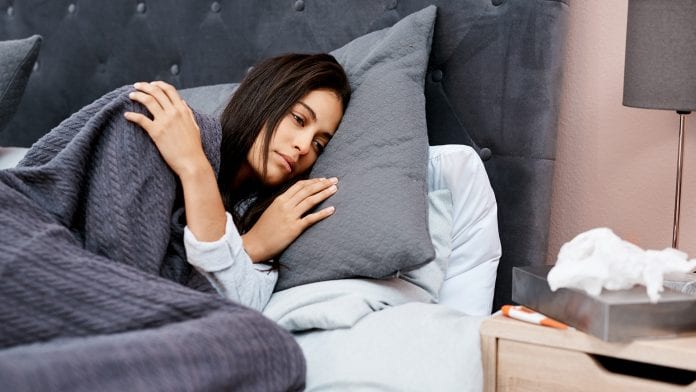
Psychologists at the University of Liverpool have been researching the effects of lockdown on people with chronic pain conditions.
Current estimates indicate that up to 28 million in the UK are living with chronic pain (pain that lasts for more tan three months) and for up to 8 million people, the chronic pain suffered is disabling.
As the COVID-19 pandemic began to unfold in the UK in 2020, a team of scientists and clinicians from the University of Liverpool and The Walton Centre, with support from the Pain Relief Foundation, designed an online study to track over 400 people with chronic pain. During the first lockdown, they examined people’s pain levels, as well as aspects of psychological and physical wellbeing.
The findings, published in the British Pain Journal, revealed that people living with chronic pain were worse impacted by lockdown conditions than those without chronic pain conditions. The researchers reported that those studied suffered from bigger increases of anxiety and depression, as well as increased levels of loneliness and reduced levels of physical exercise. Participants also reported that their pain felt more severe compared to before lockdown.
The scientists indicated that psychological constructs (pain catastrophising) and levels of physical activity, both of which impact people’s experience of chronic pain, may be significant targets for pain management interventions during the pandemic.
Dr Nick Fallon, lead researcher and Lecturer in Psychology, commented: “Our research was the first to consider the impact of lockdown conditions in the UK on people living with chronic pain. Further research is urgently needed so that we can make evidence-based decisions about adapting clinical provision for such patients to tailor and target interventions and minimise suffering during the pandemic.
“The data from our study supports the need for improved remote management of people living with chronic pain. Specifically, we can utilise these findings to consider the type of remote therapeutic approaches required, or even to target the mechanisms leading to adverse effects of lockdown in this vulnerable population.”
Samantha Sunners, a participant in the study, added: “I have persistent nerve pain and neck pain that requires me to have injections into my neck and take pain killers. During lockdown my pain heightened, as all of my hospital treatment was cancelled, in particular a steroid injection that was delayed from March until October.
“I have caring responsibilities for my three young children and this took its toll along with home school and juggling work from home. My anxiety increased as I was concerned that all of my pain management and coping mechanisms had been withdrawn. I did eventually commence my treatment, but the months in between were incredibly challenging.”
The team of researchers continued to monitor the patients throughout the first year of the pandemic; they will now use the data collected to try and understand how the experience of people with chronic pain conditions has changed in the last year.







